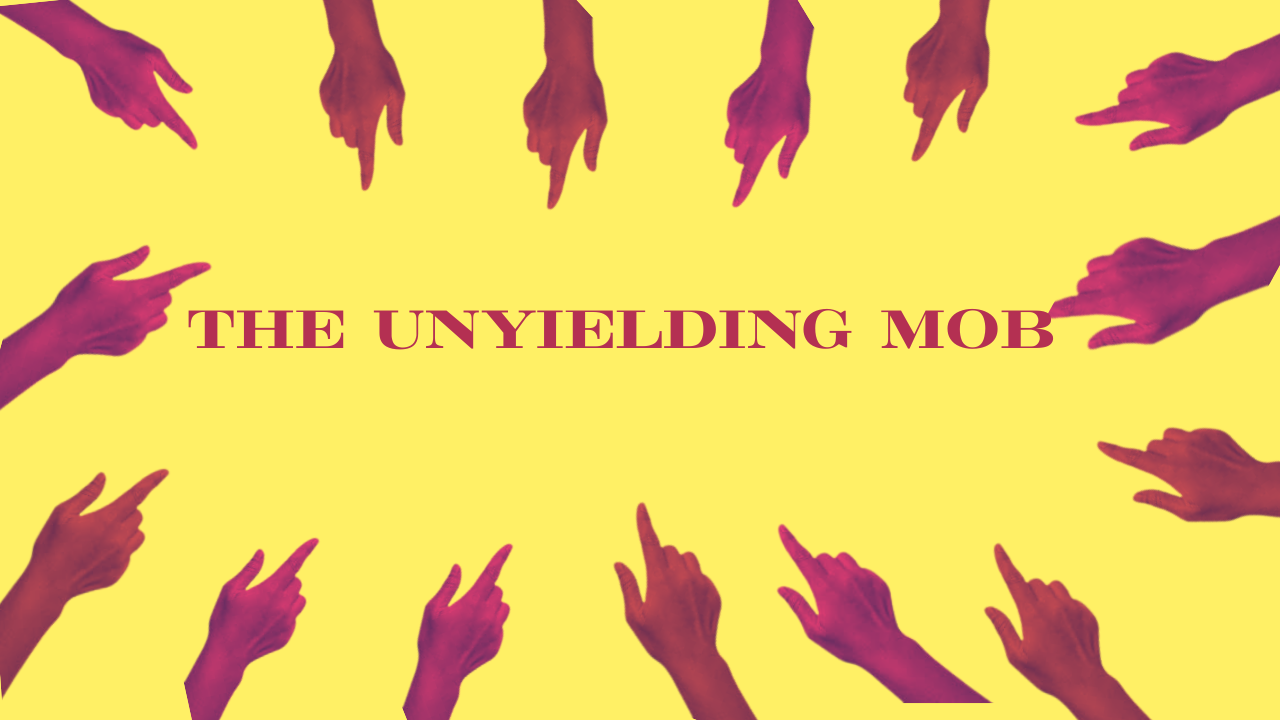To live in the Information Age also means surviving in the surveillance age. With the entire world within a moment’s notice, there is instantaneous access to each person every hour of the day, meaning no one truly possesses the luxury of privacy.

In the past, whenever a person broke a social code, they were publicly shamed and humiliated as far back as the Salem Witch Trials. Living in this age of surveillance means that any mistake–great or small, inconsequential or consequential–will be broadcast to millions of people to see and judge. Within minutes, something someone has done, anything anyone will ever do, is up on the internet. It will never disappear; it will exist in perpetuity.
This is where the term ‘cancel culture’ comes into play. ‘Cancel culture’ first emerged as a line from the movie New Jack City (1991) and rose to stardom during the mid-2010s, according to Axis. The term has been co-opted to describe the exclusion and punishment of those who violate social codes, so it stems from the principle of public shaming. From influencers who have been in the public eye for decades becoming shunned and scorned, to disgraced politicians who were forced to leave office, to offenders in early America locked in pillories for all to jeer and sneer at, cancel culture is as much an American pastime as baseball.
Cancel culture has certainly removed individuals deemed unfit to participate in the social sphere. It has taken on a new life, however, with the Internet. But why are people, by virtue of using the internet, fit to pass judgment? Should every person on the internet be the one to dole out what we deem justice? And what of the ‘crimes’ committed by these perpetrators? Do they warrant the harsh, life-altering ‘punishments’ that are forced upon the condemned?
One recent example of public shaming in the form of cancel culture is the infamous Coldplay Incident, which occurred on July 16, 2025, at a concert in Foxborough, Mass. The kiss cam at the concert landed on two individuals in an embrace. Upon realizing they were on the jumbotron in the stadium for all to see, they abruptly pulled apart, the woman turned to hide her face, and her male companion ducked under the railing. “Either they’re having an affair, or they’re very shy,” lead singer Chris Martin jokingly said, prompting laughter across the stadium.

That innocent remark opened the floodgates and made this the incident it is today.
Internet detectives quickly identified the pair (The pair will not be named here, but for the sake of understanding, I will refer to them as the ‘Cold Players’), and uncovered their extramarital affair. Instead of stopping at this, many internet sleuths and well-meaning folks on the internet went ahead and contacted the spouses and families of the cold players and hounded them to file for divorce. Users contacted the Cold Players’ employer, and the company was badgered to dismiss them.
Along with the invasion of their privacy, there were countless jokes made across all social media platforms, most prominently on TikTok and X, at their expense.
“We should hold a public humiliation thing to shame cheaters,” sophomore Haasini Krishna said. Certainly, as the general public, people have a vested interest in taking part in the correction of a member’s behavior, especially if it is their social behavior, but people have a tendency to take things too far.
“Although cheaters should be humiliated for their behavior, we should humiliate them only for their actions, not how they look, or who they are,” Krishna continued to say.
Undoubtedly, society should condemn the actions, not the person. However, herein lies another problem with modern public shaming of cancel culture: the complete disregard for nuance. Instead, attacks lean into a person’s gender, race, sexual orientation, religion, and other qualities.
Nathaniel Hawthorne said it best in his 1850 novel, The Scarlet Letter, “The public is despotic in its temper; it is capable of denying common justice, when too strenuously demanded as a right.” The public has constant mood swings, and it often denies justice when it is due.
While they were having an extramarital affair, which is generally considered morally and socially reprehensible, the Cold Players did not deserve the digital dog pile they were subjected to. Their lives have been upended, the suffering they’ve experienced, as well as the pain they have caused their loved ones, have become public theater where anyone with a haphazard opinion can weigh in from their keyboard.
Hawthorne wrote about the Puritan society of Old America in The Scarlet Letter and how excessive policing of individual morality is destructive, yet his observations and criticisms hold for contemporary American society. Most would not consider the kind of justice doled out by the internet mob “puritanical,” yet rigid, unspoken codes of conduct for one another are imposed ,and compliance is expected. Failure to comply results in getting “canceled.”
This isn’t to excuse any behavior that has initially gotten individuals canceled. (Behavior, such as the use of racial, homophobic, xenophobic, transphobic, and misogynistic slurs, cheating, and other socially unacceptable behavior.) The internet doesn’t excel in differentiating between people deserving of ostracization and those who don’t; it deals in absolutes.
Anne Applebaum, of The Atlantic, put it best in her article, “The New Puritans:” “The modern online sphere, a place of rapid conclusions, rigid ideological prisms, and arguments of 280 characters, favors neither nuance nor ambiguity.” No one slows down to consider their words, and every event takes place in a vacuum of absolutes.
Applebaum’s observations also call point out how internet users divide themselves into sections and sub-sections.
“[Cancel Culture] has become a parody of itself,” English teacher Jeff Lacey said.“[Because] the reasons for canceling have become fast and furious, and very partisan.”
So what can be done? How should the questions about public shaming be addressed? First, acknowledge that public shaming–in the form of canceled culture–has been relatively ineffective and destructive. Also, limit the use of social media or interactions with inflammatory content regarding a controversial person or people. The final thing, the most difficult, is not to jump to conclusions.
“I believe that it is important to find both parts of a story to create your own opinion on it,” senior Bailey Wilkins said.
Hop off the bandwagon, and understand that real people are being affected by the seemingly mundane motion of a finger swipe. As Hawthorne wrote, “It is the credit of human nature that… it loves more readily than it hates.” While public shaming attempts to hold people accountable for their actions, the public should approach from a place of compassion, or at the very least, neutrality, because it should not have absolute power in determining how best to punish wrongdoers.





